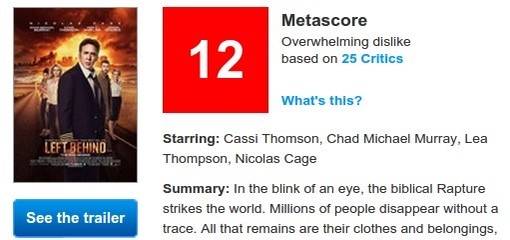
Obviously the (online) world did not end on April 21st 2015. Mobigeddon turned out to be a singularly quiet apocalyptic event. Many commentators could be excused, perhaps, feeling left behind after using fairly strong language about it; we on the other hand looked on such theatrics with an interest just on par with the film’s metacritic score of 12 induces. None.
Even though websites aren’t falling left and right we do agree that we are at (or even past) a point where paths diverge. Some understood it, others didn’t bother trying. Bryson Meunier just published a post in SearchEngineLand gently pushing the herd of undecided towards the idea that "this is only the beginning".
Here is his list of reasons why Mobigeddon didn’t just fizz out:
- There were and are businesses that really lost search traffic for not being mobile friendly
- Mobile rankings are increasingly different from Desktop rankings, as suggested by SEOClarity analysis
- Google has strong incentives to push search results for mobile searchers
#1 is so far is proving to be a relatively weak point according to Moz, but see the Searchmetrics list of winners and losers for good examples on both sides. #2 is fairly well established even before the advent of Mobigeddon. #3 is actually the strongest argument there - there is definitely pressure on Google to continue twisting our collective tails towards mobile friendliness.
All in all, Mobigeddon should be conceptualized less like an analogy for a global extinction event and more like the introduction of printing press in the middle ages or, for that matter, any other profoundly disrupting technology.






Posting comment as guest.
If you already have an account, please LOGIN.
If not, you may consider creating on. It’s FREE!